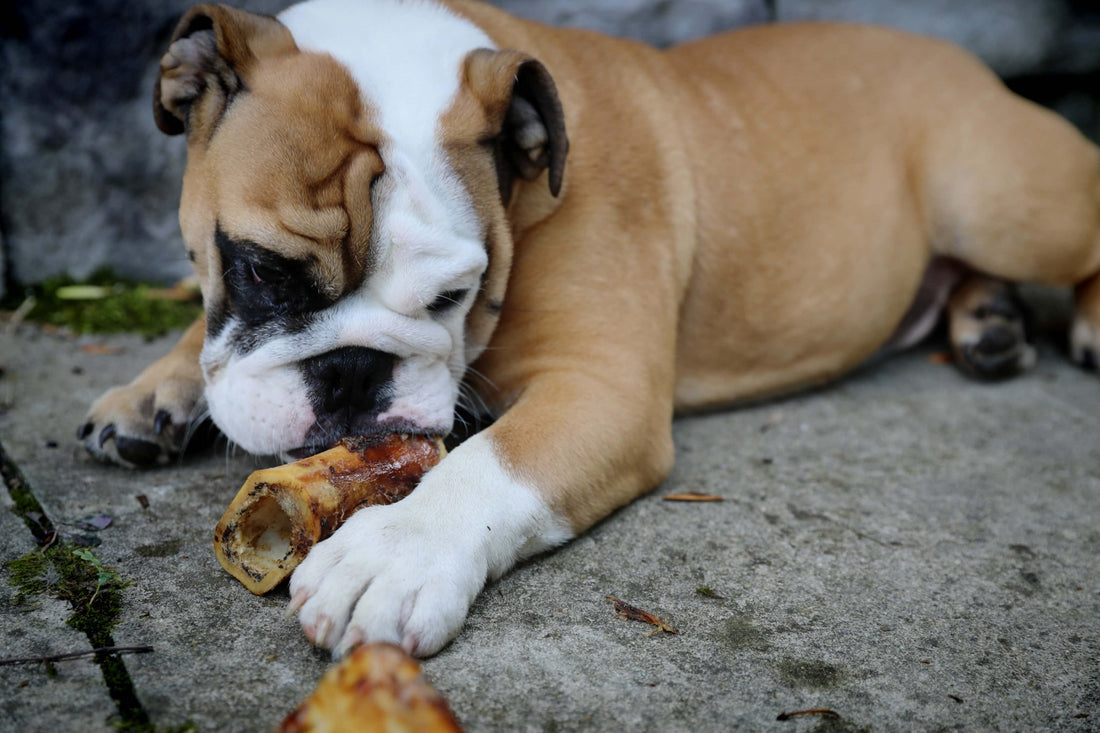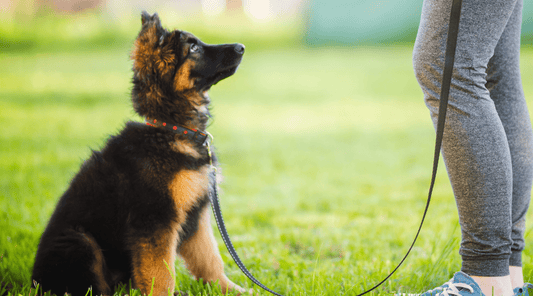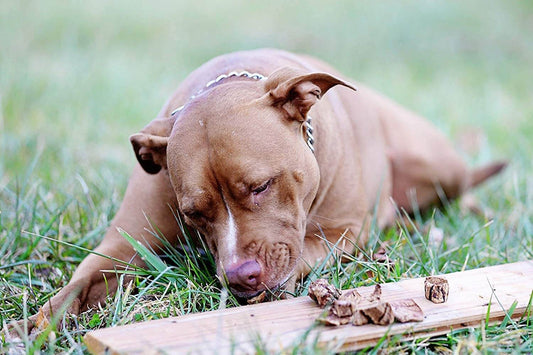Raw Bones for Dogs: Why I Don’t Fear the Crunch
Dawn Miller May 16, 20254 Minute ReadIf you’ve ever handed your dog a bone and instantly panicked, wondering, “Wait, is this safe?”—welcome to the club. I’ve been there too. Standing in the kitchen, watching my aggressive chewer Bruno chomp down with the intensity of a jackhammer and praying it wouldn’t end in an emergency vet visit.
But here’s what I’ve learned through trial, error, a few vet chats, and some seriously satisfying tail wags: raw bones for dogs can be safe, healthy, and incredibly rewarding—if you know what you’re doing.
Let’s dig in. (Not like, bone-in-the-backyard dig. But close.)
What Are Raw Bones, Anyway?
Raw bones are the uncooked bones of various animals that dogs like to gnaw on. They might come straight from an independent butcher. Or, while not usually on display, you can request them from the grocer's butcher in the back of larger grocery stores.
Raw bones still have moisture, which makes them less likely to splinter like cooked ones. That’s why vets often say cooked bones = danger zone. Raw bones = better, but not risk-free.
So, rib bones after a cookout? Marrow bones that you used to make a bone broth? Once they're cooked, they're too soft for a dog. Soft sounds good. But what it actually means is that they can sink their teeth into the overcooked bone and break it off. These bones are also more likely to splinter (causing tears or blockages that might need surgery).
What Kinds of Raw Bones Can Dogs Eat?
We’re talking things like beef rib bones for dogs, cow bones for dogs, and marrow-filled options that give pups that primal chewing satisfaction.
Ox, sheep, goat? All in all, they're generally okay as dog bones. But of course, you already know that some bones, like turkey and chicken, are off the menu because they're too soft. Pigs are out because raw pork can carry devastating parasites to both dogs and humans.
Why Dogs Love ‘Em (And Why I Let Mine)
There’s something ancient and instinctual about a dog gnawing on a raw bone. It satisfies their natural urge to chew, which is especially helpful if your shoes have been taking a beating lately. And I'm sure it tastes amazing, compared to kibble.
But there's more to it than that:
Here’s what else raw bones can do:
- Boost dental health - The chewing action scrapes away plaque and tartar that harbor teeth-destroying bacteria. In fact, a researcher put them to the test and found up to an 80% reduction in harmful bacteria in the mouths of the dogs that ate bones for just 12 weeks. That's huge! For dogs, bones are nature's toothbrush.
- Support digestion - Natural enzymes in marrow and cartilage aid gut health. Plus, they contain collagen protein, which makes up the gut lining. If you have a dog with a temperamental tummy (at both ends), introducing them to raw bones can help.
- Bone and joint support - Collagen, glucosamine, omega-3, and more are found in the marrow and connective tissues, which may help dogs build and maintain healthier bones and joints as they age.
- Mentally-stimulating - A raw bone is the dog version of Netflix and popcorn. It's entertaining and kicks boredom to the curb. As a result, having a bone to chew on at least a couple of times a week can improve mental health in dogs. It can ease behavioral challenges like hyperactivity, anxiety, overreactivity, distractibility, and even destructive chewing. They get your pup ready to learn more dog commands because they strengthen your bond. By the way, have you signed your pup up for the 7-Day Dog Training Challenge?
My terrier, Pixie? She’ll carry a raw bone around like it’s a trophy before settling into her “crunch corner” under the coffee table.
She thinks we can't see her. It's adorable!
But Wait—Are Raw Dog Bones Safe?
They can be. But you need to pick the right ones. That means:
- Sourcing raw from a butcher you trust not to leave them sitting out
- Supervising chewing sessions (always!)
- Storing properly since raw bones should be refrigerated or frozen
- Avoiding brittle bones that could splinter or get lodged
- Staying away from small bones that your dog could swallow. Of course, too small depends on how large or itty-bitty your pup is.
- The Downside of Raw: A Cost-Benefit Analysis
Now, here's the downer you really need to know about. The American Veterinary Medical Association recommends against feeding your dog any raw food for the same reason you wash your hands when cooking raw meat.
Raw food can contain high amounts of harmful bacteria.
And it doesn't matter if dogs eat raw in the wild. Typically, domesticated dogs have not developed an immune system to handle a raw dog bone. And I'm talking about worse than just vomiting or diarrhea, especially if that bone wasn't stored correctly before you got it.
Plus, there’s always the “ick” factor. I once caught Bruno happily flinging raw cow on my throw pillows. I was not pleased... to say the least.
A Safer Alternative to Raw Bones
Raw bones are great. There's no two ways about it. But they have risks that I'm not comfortable with. That's why I don't give Bruno and Pixie raw bones anymore. I found something better: K9 Connoisseur’s real, grass-fed beef dog bones.
They offer all the benefits of raw dog bones—like joint-supporting collagen and satisfying chewing—without the mess, smell, or risks to both dog health and human health.
That's because they're responsibly sourced from beef cattle (that have stronger bones than older, retired dairy cows). And they're roasted at a slow and low heat to preserve nutrients without going too brittle or too soft. My dogs go nuts for them, and I don’t have to Lysol the living room afterward.
They’re great for teething puppies, anxious chewers, and bored dogs who need a job. Bonus? They help clean teeth naturally and keep breath from smelling like a trash can.
Bottom Line
Raw diets are great until they're not. You do have a safer alternative. I choose roasted grass-fed dog bones and dog treats. So, my pups get all the benefits of raw without the risks.
Available On:
Disclosure: This article may contain affiliate links, which means we may earn a small commission if you make a purchase through these links—at no extra cost to you. We only recommend products we trust and believe will benefit you and your K9.






